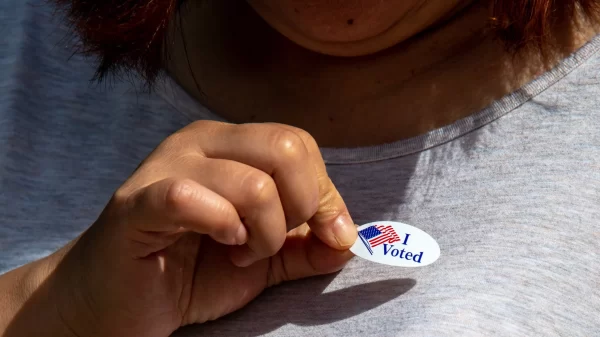By Brandon Moseley
Alabama Political Reporter
A number of State officials are questioning the legality of Governor Robert Bentley’s decision to postpone the Special Election until 2018 for the US Senate seat.
On Saturday Gov. Bentley responded to the criticism claiming that it would be too expensive to hold a Special Election and there would not be enough time for independent and minor party candidates to get the necessary signaturs for ballot access.
State Representative Christopher John England (D-Tuscaloosa) said on Facebook, “As you know, I have been questioning the legality of the Governor’s plan for the election to permanently fill Jeff Sessions’ Senate seat. I think that it is clear that his plan to use next year’s election cycle is illegal. Well, they responded. So, here is why they believe that what they are doing is legal.
The Governor’s Office Response: “Alabama Code section 36-9-8 has three scenarios for setting a special election to elect a senator to fill the unexpired term of a senator.
(1) One scenario is if the vacancy occurs 60 days before a general election. Then the statute states the election is held in 60 days. That scenario does not apply here because we are not within 60 days of the 2018 general election.
(2) The second scenario is if the vacancy occurs within four months but over 60 days before the next general election. That too does not apply here, since we are over four months from the 2018 general election.
(3) The third scenario is if the general election is over 4 months from the general election. That is the situation that applies to this vacancy. In that case the code says “the Governor shall forthwith order an election. . .”
The term “forthwith” does not have a set definition in terms of a time period. As one Court observed, “forthwith” lacks the “definiteness” and “certainty” as to “the matter involved.” State ex. Rel. Gunn v. Argo, 151 So. 844 (Ala. 1933). It may have “a relative meaning, implying a longer or shorter” time period according to the connection of its use and nature of the requirement. Haisten v. State, 59 So. 361 (Ala. Crim. App. 1912). Context of how this particular term is used greatly affects its meaning. InHaisten v. State, 59 So. 361 (Ala. Crim. App. 1912), the Court discussed different definitions of “forthwith” including Black’s Law definition and noted that when “forthwith” is used in a statute it means to act in “a reasonable time.”
There are several factors in considering what is a reasonable time. Those factors include compliance with federal statutes and cases, saving unnecessary expense, and setting a time that will increase voter participation and turnout.
1. UOCAVA, 42 U.S.C. §1973ff. This statute is a federal act that requires overseas service members and citizens residing overseas have ballots in their hands forty-five days before any federal election. This forty-five day requirement would apply to the special election primary, special election run-off, and the special general election. In order to insure that the ballots are in the hands of the service member or overseas citizen, the Secretary of State must mail those ballots fifty-four days before election. The requirements of UOCAVA are in addition to other applicable election timelines set out by state law. An expedited schedule of 60 days would (1) violate federal law and, ultimately, the Constitution, and (2) would violate federal law that protects the right to vote for our soldiers serving overseas. Therefore such an expedited setting is not reasonably practicable as the Alabama law requires.
1. Hall v. Merrill, 2016 WL 5796871 (M.D. Ala. 2016). Holding the special election at the 2018 general election also must respect a current federal court order protecting the constitutional rights of ballot access and the ability of voters to choose independent candidates. In the case of Hall v. Merrill, 2016 WL 5796871 (M.D. Ala. 2016), the Federal Court held that Alabama’s 3% signature requirement for independent candidates to gain ballot access was unconstitutional in a special election for United States House of Representatives seat because it placed a severe burden on independent candidates by having the deadline for filing the signatures within 106 days of the announcement of the vacancy and 56 days from the announcement of the setting of the date of the special election. In determining if an unconstitutional burden is imposed by the ballot access statute, the Court held it must look at whether a reasonably diligent candidate could have been expected to satisfy the 3% signature requirement in the allotted petition window. A candidate seeking ballot access for the United States Senate special election will need 6 times the signatures as the candidate- plaintiff in the Hall v. Merrill case. Therefore, any special election for an anticipated Senate vacancy must be set under the mandate of the Hall v. Merrill decision and allow independent candidates enough time so as to not impose an unconstitutional burden on their attempts to obtain ballot access. Scheduling a quicker special election in defiance of a federal judge’s order, is contrary to the Constitution and at the very least not legally practicable.
1. A faster special election is not practicable because of the cost associated with it. While estimates of cost savings may vary, there is no question that holding the anticipated special election to coincide with the 2018 general election will save the state millions of dollars. The savings in ballot printing costs and compliance with the electronic ballot requirements alone will save the state millions of dollars. The state would save monies for poll workers, security, electronic ballot programing, voting machine custodians, and many other election expenses by having the special election coincide with the 2018 general election. There are numerous other logistic advantages to holding the special election to coincide with the 2018 general election.
1. It is also expected that having the special election coincide with the general election of 2018 will greatly increase voter participation and turnout.
For these reasons, the 2018 general election is the most reasonable time to hold the special election to fill the unexpired term of Senator Sessions.”
Rep. England said, “Now that Luther Strange has been appointed to the US Senate to replace Jeff Sessions, what happens next? Well I’m glad you asked! State law requires the Governor to call a special election.” “According to Alabama Code Section 36-9-7 the Governor’s Appointment is only temporary. So what does temporary mean? Could it mean that we can just wait until 2018 when Sessions’ term expires anyway? That’s another great question! The answer is unequivocally NO.”
Rep. England said, “Alabama Code Section 36-9-8 states that “whenever a vacancy occurs in the office of senator of and from the State of Alabama in the Senate of the United States more than four months before a general election, the Governor of Alabama shall forthwith order an election to be held by the qualified electors of the state to elect a senator of and from the State of Alabama to the United States Senate for the unexpired term.””
Rep. England concluded, “So what does that mean? Well, unless we are within four months of the 2018 General Election, we must have a special election to replace the Governor’s temporary appointment. It appears to be clear to me that you can’t wait until 2018. The law REQUIRES a special election.”
State Auditor Jim Zeigler said that Gov. Bentley’s setting of the special election for a U.S. Senate seat in the 2018 election cycle “is in double violation of state law.”
On Friday, Zeigler filed a request for an Attorney General’s Opinion that Bentley cannot delay the special election for 22 months but must set it “forthwith.” Zeigler said that the delay by Bentley is “an effort to give almost two years to the appointed Senator without a vote of the people.”
Zeigler said, “He says the election can be delayed to the next regular election only if the senate vacancy occurs within four months of the next election. The vacancy caused by former Sen. Jeff Sessions becoming US Attorney General was 21 months from the next general election, November of 2018.”
























































You must be logged in to post a comment Login